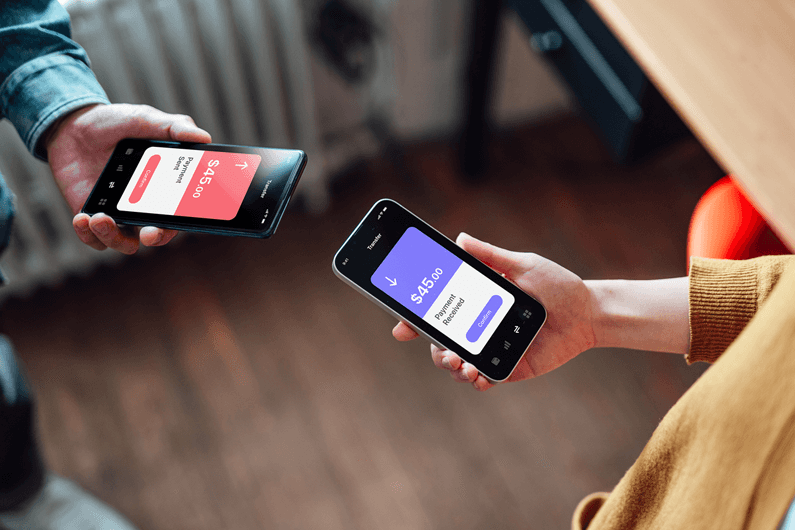
How to Avoid Mobile Payment Fraud
Simple precautions can help ensure digital payments are safe.
Over the last decade, digital payments have become an increasingly popular method for sending money to friends and businesses. Digital payment alternatives, such as Zelle®, Venmo, and PayPal allow users to easily transfer digital payments to one another in real time, whether splitting the check at a restaurant or paying next month’s rent.
Zelle® facilitates money being sent directly between the sender’s and recipients’ bank accounts, while other apps, like Venmo, allow you to download funds to your app for transfer to someone else.
Unfortunately, the increasing adoption of digital payments has been accompanied by a rise in fraud and scams. That’s why it’s important that you take some simple precautions when sending money digitally. This article provides tips on how to use digital payments safely and help avoid potential fraud and scams.
Fraud vs. Scams
It’s important to understand the difference between fraud and scams when using digital payment apps.
When another person gains access to your bank account without your permission and makes a payment that you have not authorized or steals your money, that is considered fraud. For this reason, you should never share passwords or PIN numbers with anyone. If you suspect that someone has gained access to your account, you should contact your bank immediately. If the payment was not authorized, you are usually able to get your money back.
On the other hand, if you were involved in making a transaction and approved a payment that went to a third party as part of a deception, that is known as a scam. That’s true if you were tricked by someone posing as a relative or thought you were paying for goods such as tickets that you never received. In these cases, you may not be able to get your money back because you authorized the payment. So it’s important to make sure you only send money to someone you know.
Top Digital Payment Scams
Scammers often use social engineering, or psychological manipulation designed to lure people into a false sense of security, convincing them to give out personal information or money. Social engineering uses fear and persuasion to lower users’ defenses so they’ll act on impulse instead of reason. One of the most common forms of social engineering is phishing, where fraudulent emails or texts are used to trick users into divulging sensitive data or making instant payments.
Bank impersonation is another frequently used social engineering tool, in which the cybercriminal pretends to be a bank employee or customer service representative. This type of social engineering preys on the natural tendency to believe people are who they say they are and to follow instructions when asked by an authority figure.
Some of the most common digital payment scams include:
- Utility Scams. A scammer pretends to be a representative of your electric or water company and threatens to turn off your services unless you send payment right away or provide some important personal information.
- Marketplace Scams. If you see an item online at an extremely attractive price, it may be too good to be true. Those concert tickets or cute puppy may never exist. If you pay without knowing the seller personally or seeing the product, the seller can take your money and disappear.
- Pay Yourself Scam. A person pretending to be a representative of your bank or credit union tells you that there has been a fraudulent transaction and in order to stop it, you need to send yourself money with Zelle®.
To protect yourself when using payment platforms, be sure to follow these safety tips:
- Don’t trust anyone who calls or texts asking you to send money to yourself. These "pay yourself" scams are common tactics scammers use to access your bank account.
- Always ensure that the phone number or email you are sending money to actually belongs to the person you think it does. Scammers often pose as family members or trusted companies to request money. Double-check that all the information is accurate before sending any money.
- Never share your password, temporary access code, PIN, or any account information with anyone. This could allow a cybercriminal to access your account or use it to send money without your knowledge.
- Fifth Third Bank will never call or text asking you for your account login information. If anyone tries to do that, it is a scam, and you should not share any information.
Following these precautions will help you safely send money to people you know, and help you make sure that it is going to the right individual or company.